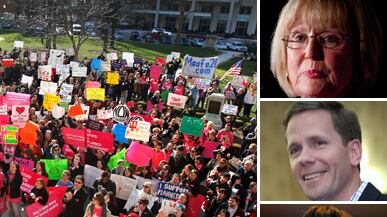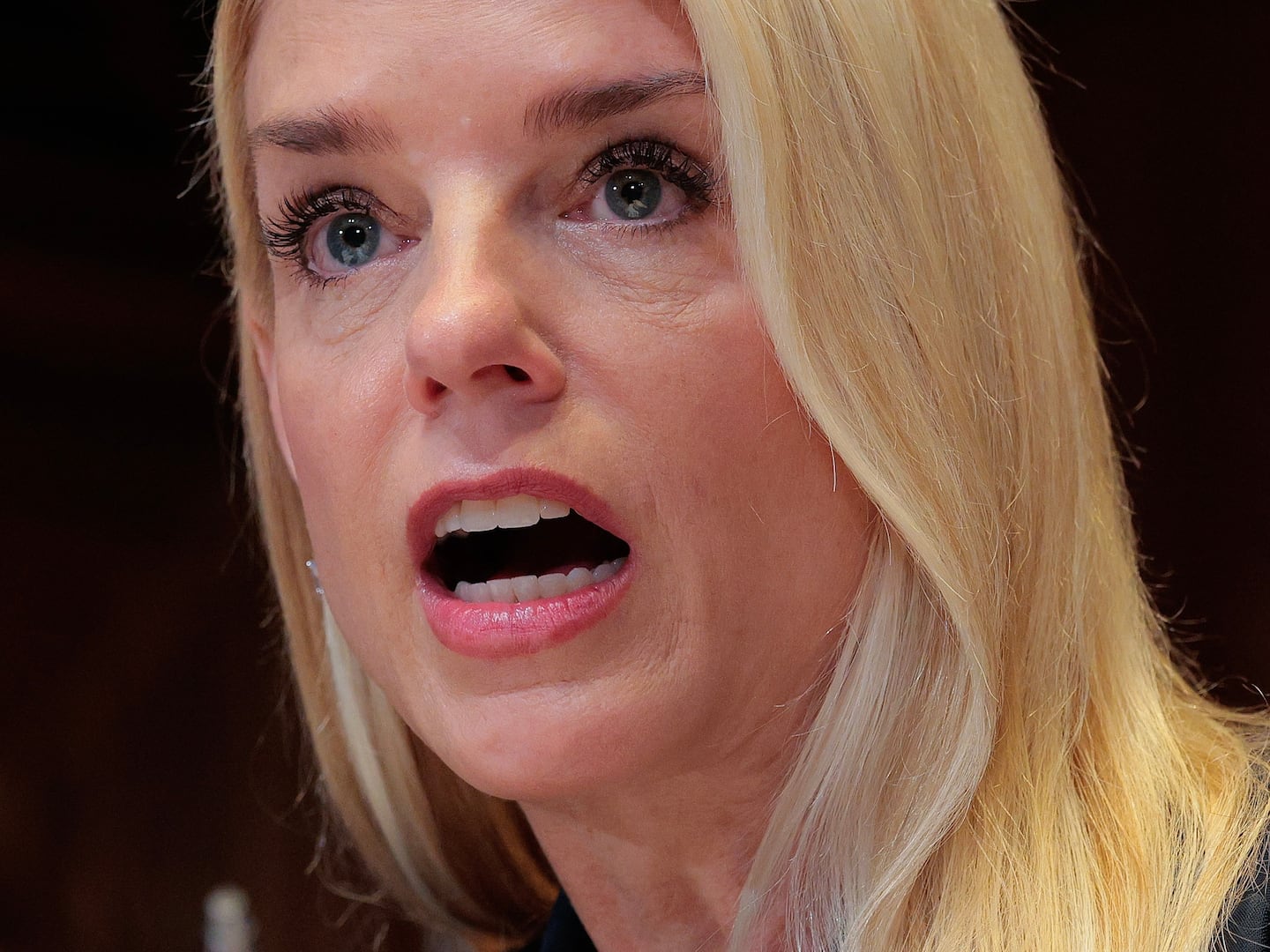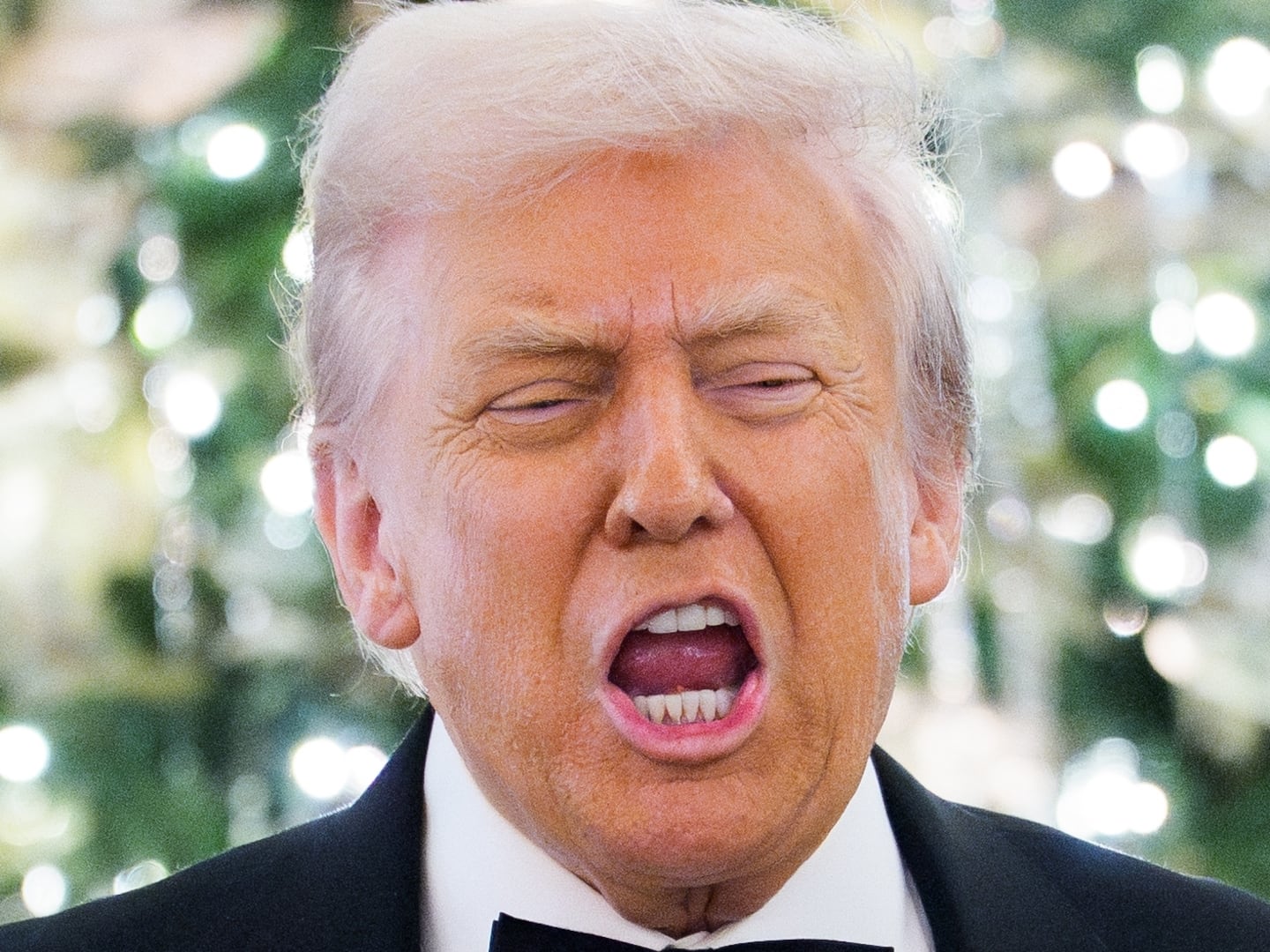Seven House Republicans who broke from their party to support continued funding for Planned Parenthood are being lauded as heroes by the venerable family-planning organization—even as conservative activists are raising the specter of possible primary challenges if they continue to stray.

The defining vote was on the Pence Amendment, named after its sponsor, Republican Mike Pence of Indiana, which would cut off federal funding to Planned Parenthood not only for family planning but for basic cancer screening and health care services for poor and low-income women. The seven dissenters are Robert Dold and Judy Biggert of Illinois, Richard Hanna of New York, Mary Bono Mack of California, Charlie Dent of Pennsylvania, Rodney Frelinghuysen of New Jersey, and Charles Bass of New Hampshire.
They are not keen on advertising their stance, however; none would agree to interviews with The Daily Beast.
Only two freshmen are among the seven. One of them, Dold, surprised advocates on both sides of the debate when he not only cast his vote but rose to speak on the House floor in support of Planned Parenthood.
“The elimination of family planning dollars would deny access to preventative care for millions of women each year,” he said, citing conversations with his sister, an obstetrician/gynecologist, and other doctors about the importance of encouraging access to basic preventative care. Dold said 5 million individuals are seen each year through funding provided by Title X, created during the Nixon administration, and for every dollar invested in family planning approximately $3.74 is saved in Medicaid-related costs.
Dold, 41, is a pro-choice Republican representing the fiscally conservative and socially moderate northern suburbs of Chicago, the seat previously held by Mark Kirk, newly elected senator from Illinois.
The two women supporting Planned Parenthood, Biggert and Mack, are longtime backers of limited abortion rights. Mack, the only Republican woman in the California delegation, provided me with this statement: “The Pence Amendment cuts off federal funding to Planned Parenthood for all services—not just abortions. I believe that is a big mistake and represents a threat to the health of tens of thousands of American women. Breast cancer screenings, pelvic exams, HPV tests and scores of other vitally important health care services—services that save lives—would be unfairly impacted.”
Today’s climate represents a remarkable turnabout in the Republican Party since Richard Nixon was a champion of family planning.
Federal money has not funded abortions since the Hyde Amendment banned the practice in 1976. But critics contend that money is fungible and that government support for Planned Parenthood frees up the organization’s network of clinics to perform abortions with privately raised funds.
The Susan B. Anthony List, an anti-abortion group, is keeping a watchful eye on Dold and the others to see how far they stray and whether a primary challenge is in order. But conservative activists might want to carefully consider their threats if they want to hold these seats for the GOP.
Bill Beckman, executive director of Illinois Right to Life, says the “dynamics” in the districts of the two Republicans from his state “are not conducive” to a successful challenge. Barack Obama won Dold’s Illinois district in 2008 with 61 percent of the vote, and in last year’s crowded GOP primary, no social conservative was even on the ballot. Hanna, the other freshman who broke ranks to support Planned Parenthood, got elected in his upstate New York district as an advocate of a woman’s right to choose.
“The key for me is that there’s some posturing going on,” says Beckman. He points out that the seven House Republicans who voted against the Pence Amendment turned around and voted for the House GOP budget, which calls for defunding Planned Parenthood. On the other hand, two pro-life Democrats in Illinois voted for the Pence amendment, yet opposed the Republican budget. “Which would you rather have?” he asks, calling the Planned Parenthood vote symbolic.
All seven dissidents represent socially moderate districts, and their votes hearken back to a time when Planned Parenthood enjoyed widespread support from Republicans. The Bush family patriarch, Prescott Bush, served as treasurer for the group’s first national capital campaign in 1947, and former president George H.W. Bush backed Planned Parenthood until he joined the Republican ticket in 1980. Viewed through the lens of history, today’s climate represents a remarkable turnabout in the Republican Party since Richard Nixon was a champion of family planning.
Eleanor Clift is a contributing editor for Newsweek.






